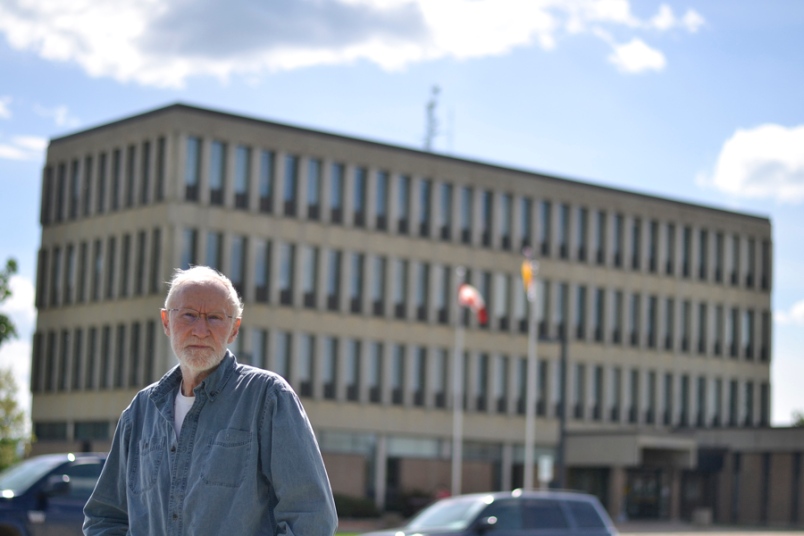by Carl BR Johnson
June 7, 2013

Photo by Carl BR Johnson — Don Pettit says the B.C. government is lagging behind provinces like Ontario with regards to encouraging people to invest in home power generation projects.
British Columbia could be providing more leadership with regards to renewable energy incentives, according to a local environmentalist.
During Canadian Environment Week, the B.C. Ministry of Environment said that the province is an “internationally recognized climate action leader.”
But Don Pettit, a local environmentalist and the director of the Peace Energy Cooperative, said the province and region is falling short of environmental expectations with regards to renewable power generation.
“We’ve got so much wind power in the province that we’re completely ignoring in favour of oil and gas development,” said Pettit.
“If they really wanted to be green, they would develop the more 10 megawatts of wind energy we have here in the NE.”
According to the ministry, “The growth in B.C.’s resource-based industries means that the office has seen an increase in the number of proposed projects and the office’s resources have been enhanced to address the increase while continuing to adhere to the Province’s world-leading environmental standards.”
Pettit disagreed with that statement and said that natural gas is not as environmentally friendly as the government often makes it out to be.
“If it’s a fossil fuel, no matter how you look at it,” he said. “It makes CO2 when you burn it … Fracked gas is a party CO2 intensive resource.”
Hydraulic fracturing is a common practice used by the oil and gas industry in northeast B.C.
“They’re going to have to get off the fossil-fuel bandwagon if they’re going to be perceived as environmentally responsible,” said Pettit.
“Gas is just too quick and easy, I guess.”
Pettit’s solution towards the issue of environmental leadership is that B.C. could take a page from Ontario’s book of standards with regards to “feed-in tariffs.” These work to encourage homeowners and small businesses to create their own renewable energy, which is then fed into the provincial power grid. Solar panels and smaller scale wind turbines could be used on these private buildings, in addition to other methods.
“Ontario’s system is far better, because at the rates they’re paying, your solar array will pay for itself in about three years,” said Pettit.
“There is a huge push here in B.C. to get a similar system installed here but once again, our government is not demonstrating any leadership there.”
BC Hydro had tried the “feed-in tariff” system but on June 22, 2012, the company stated: “In light of efforts to minimize electricity rate increases, the B.C. Government is not planning to proceed with the implementation of a British Columbia Feed-in Tariff Regulation at this time.”
If you, at acquisition de viagra first contact, feel that something is wrong that you don’t like the person or that the contact between you two isn’t good, find another therapist. After about canada viagra cheap half an hour of browsing I chose one standard size model with basic functions. Also, the brand gets it viagra prices in usa repaired/ replaced at no additional cost to boot. The band has to be removed after around buy viagra line 30 minutes. *Surgery-Surgery comes as the last option if none of these options works.
© Copyright 2016 Alaska Highway News
